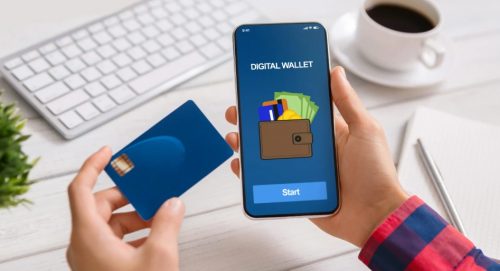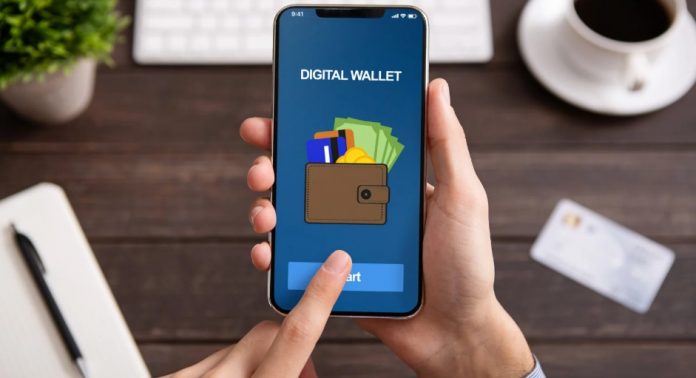Digital wallets are transforming into mass-scale financial instruments that fulfil the role consumers are looking for in the global market, since people want fast, secure, and straightforward tools to handle their finances.
Consumers now use these wallets for simple transactions, such as paying for coffee through a phone tap, or completing money transfers by swiping. As a result, these digital wallets are changing how daily transactions are handled. This is all about convenience.
Why Digital Wallets Are Winning Globally?
Apple Pay and iGaming
The adoption of digital wallets extends far past traditional retail and has spread to the online gaming space. Some online casinos now use digital payment systems like Apple Pay to carry out transactions.

Secure Apple Pay casino sites represent major progress in the market because the digital wallet delivers powerful encryption features with convenient execution. Apple is known for its innovations and seamless user interfaces, and its digital wallet is no exception.
Users can make secure deposits on this system through fingerprint or facial recognition methods thereby doing away with repeated card details entry. The appeal goes beyond convenience since digital wallets present better user experiences through automated instant deposits which also protect against fraud.
These features are particularly valuable in the UK, where the iGaming market has a lot of restrictions but still growing. As the sector grows, demand for streamlined, secure payment solutions is expected to rise alongside it.
The Worldwide Adoption of Digital Wallets
Globally, digital wallet use is growing at an extraordinary rate. Over the past decades, Asian nations especially China and India have set trends in the industry. QR code payments and app-based systems have become fundamental components in daily operations. Western markets are also currently experiencing a rapid increase in mobile wallet adoption.
The UK is taking giant strides as more than half of British adults have adopted the use of digital payments in the past years. Tech-savvy people prefer mobile-first financial systems which will define future financial service practices.
Retailers too are catching on. The anticipated consumer behaviour alongside improved payment processes encourages retailers across different market levels to incorporate the use of these wallets.
Why Businesses Are Adopting Digital Wallets?
These software wallets offer clear value to merchants. Quicker checkouts reduce queue times and improve customer satisfaction, while reduced reliance on cash improves safety and lowers handling costs. For small businesses in particular, app-based POS (point-of-sale) solutions linked to digital wallets can simplify operations and enhance efficiency.
Importantly, digital wallets also provide valuable consumer data, enabling businesses to better understand buying habits and personalise marketing strategies. Loyalty programmes, discounts, and location-based promotions can all be delivered directly through wallet apps, fostering stronger customer engagement.
In the UK, many independent retailers and even coffee shops have already gone cashless, drawn to the simplicity and security of digital transactions.
Financial Inclusion Through Technology

Through digital wallets, the gaps in financial access are being bridged to enable firsthand assistance for people who lack access to standard banking services.
Users who possess a smartphone coupled with internet access can get vital financial services that usually support credit history-free transactions and do not require formal banking accounts. The wallet system provides vital advantages to independent professional and non-traditional income earners.
The modern fluid economic system requires these wallet-based payment structures for their immediate funds transfers, budget tracking and fund protection. Individuals who live within low-income environments as well as in rural regions can now use these digital tools to gain financial control.
Throughout the UK where banking is highly developed, people still find app-based banking services suitable because they offer flexible money management options to those who want to avoid traditional bank accounts.
Regulation, Trust and Security
Recent consumer growth in digital wallet adoption relates directly to improved data protection measures and better guarantee of consumer safety. Features such as biometric authentication, two-factor verification, and transaction tokenization offer users peace of mind.
The Financial Conduct Authority (FCA) functions as a major regulatory body in the UK to oversee digital financial services. Strong regulations under the financial authority protect mobile payments by requiring industry agreements about privacy limitations as well as full transparency in all dealings.
The robust financial regulations from the FCA serve to construct public confidence regarding security while motivating controlled progress within fintech. Through Open Banking and other initiatives, people gain enhanced control of their financial data.
The principles of digital wallets match perfectly with the core values of these new developments which focus on transparency, user control and ease of use.
Evolving Consumer Expectations
Interestingly, the consumer market shows an increasing preference for transactions which are quick and easy. The practice of contactless payments rapidly increased in 2020 because of health safety concerns and consumers have maintained this behaviour.

The practice of tapping to pay now stands as a normal routine instead of being a cutting-edge novelty. In 2024, 18.9 billion contactless transactions were conducted, in addition to more than £1 trillion in card spending in the UK alone.
Digital wallet providers now allow retailers to embed their loyalty schemes, cashback promotions and customized offers through their platforms. Such integration enhances user experience while helping organisations keep valuable clients by incentivizing their loyalty.
Many sectors have adopted this method. For instance, Transport for London (TfL) has implemented contactless payment options that deliver hassle-free travel throughout London for a long time.
Real-World Integration Beyond Retail
These payment systems are actively restructuring how we operate within educational settings alongside healthcare institutes and public governance departments. Educational institutions test digital wallet integration as a solution for their student IDs, their meal plan systems and their billing systems.
The healthcare industry is conducting preliminary trials of digital wallet applications to deliver prescription medicines to control medical visits and disburse NHS payments.
Ubiquitous digital wallets serve beyond financial control by allowing users complete management of their personal identity, access and public service participation. Extended development of this infrastructure will expand the opportunities.
Barriers to Adoption and What’s Ahead
Although progress is steady there exist certain obstacles. The top priority for wallet app users is data protection especially when these wallets can be connected to other platforms. Users seek guarantee that their personal details will not get distributed or resold.
Limited adoption occurs among older people as well as residents of underserved regions because of insufficient digital literacy combined with limited smartphone usage.
The future looks highly optimistic regarding this development though. Financial institutions as well as startups have joined national governments to invest significantly in digital finance education, digital infrastructure development and security improvements.
Digital wallet technology will improve with better interoperability capabilities and eventually everyone will be persuaded to use them.





































